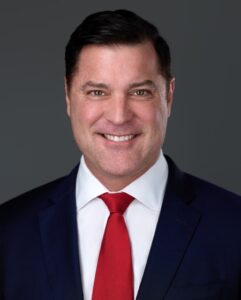
Car safety inspection laws in Burnet, TX, have been repealed for most vehicles. Thus, at least some dangerous cars that could have been caught in these inspections might now reach the roads.
Car accidents can result from many factors, including driving errors, poor visibility, and slippery roads. One factor that often goes unnoticed is equipment failures. According to the National Highway Traffic Safety Administration, about 2% of collisions result from equipment-related problems, such as bald tires or worn brakes.
When these vehicles cause crashes, a Burnet car accident lawyer from Attorney Brian White Personal Injury Lawyers can help you identify and file the legal claims available to you under Texas law. Contact us at (737) 252-8168 to set up a free consultation.
Table of Contents
How Attorney Brian White Personal Injury Lawyers Can Help After an Equipment-Related Car Accident in Burnet, TX

For over 20 years, Attorney Brian White Personal Injury Lawyers has helped crash victims in Burnet, Texas, fight for injury compensation. Our attorneys have over 45 years of combined legal experience. Additionally, our founding lawyer is board-certified in personal injury trial law.
When you are injured by another driver’s negligence, our Burnet personal injury lawyers will support you by doing the following:
- Discuss your injuries and the options you have for seeking compensation
- Collect the evidence we need to prove your case
- File a claim and negotiate with the at-fault driver’s auto insurer to settle it
- Sue the at-fault driver if their insurer denies liability
Equipment failures can cause serious single- or multiple-vehicle accidents. Contact us to request your free consultation with a Burnet car accident attorney to discuss your crash and learn about your options for financial compensation.
A History of Texas Car Inspection Laws
Congress passed the Highway Safety Act in 1966, allowing the U.S. Department of Transportation to establish safety requirements and punish states that did not implement them by withholding their highway funding. Examples of these requirements included a mandatory motorcycle helmet law and uniform speed limits.
Another requirement was regular vehicle safety inspections. Texas implemented a vehicle safety inspection law and retained it until repealing it in 2024. Effective January 1, 2025, vehicle owners are no longer required to have their vehicles inspected for safety before registering or renewing their registration.
Car Safety in Texas Today
Eliminating mandatory vehicle inspections will not immediately result in countless unsafe vehicles on Texas roads.
State law still prohibits drivers from operating a vehicle if it has any of the following defects:
- It is so unsafe that it poses a danger to people.
- It lacks equipment required by state law.
- It has equipment that is prohibited in Texas.
An example of the first defect would be a vehicle with parts dragging on the road. The part could fall off and endanger motorists, pedestrians, and cyclists. The second defect might occur when a driver tries to operate a vehicle without side mirrors. A vehicle has the third type of defect if it has red headlights or tint on the windshield, which are both prohibited by state law.
A police officer can stop and inspect a vehicle when they suspect an equipment violation. The officer can cite the driver for a misdemeanor for violations of the equipment law. However, the court can dismiss the charge if the driver remedies the issue and pays a $10 court fee.
Liability for Equipment-Related Car Crashes
Often, the police do not catch people driving unsafe vehicles. Instead, the vehicle’s defect may only become apparent after an accident. Negligent drivers sometimes try to shift the blame for an accident to an equipment failure to avoid liability. For example, a driver might blame a rear-end collision on bad brakes when the true cause was distracted driving.
However, assuming that the car truly malfunctioned, the liability for a crash resulting from an equipment failure may fall on the following parties:
The Driver
A driver is negligent when they drive a vehicle that they know or should know poses an unreasonable threat to other drivers. For example, suppose that a car stalls when turning. Instead of taking the car for repairs, the driver continues to use it. The driver may be liable if they cause a left-turn accident due to the engine stalling.
The Manufacturer
Manufacturers are liable for injuries caused by defective products. As a result, they may be liable for car crashes caused by a defective vehicle or vehicle part when it leaves their facility.
Auto Repair Shops
Auto repair shops have a duty to provide reasonably competent repair services. A shop may be liable for any crash that results from an unreasonable error. For example, a shop may be liable if a technician accidentally gets grease on the brake pads, causing the brakes to fail.
Contact Our Burnet Car Accident Lawyers for a Free Consultation
A defective vehicle can cause disabling injuries that prevent you from earning a living. Contact Attorney Brian White Personal Injury Lawyers for a free consultation to learn how we can help you pursue a claim against the parties responsible for causing your wreck. Our Burnet car accident lawyers are ready to hear your story and help you fight for compensation.
